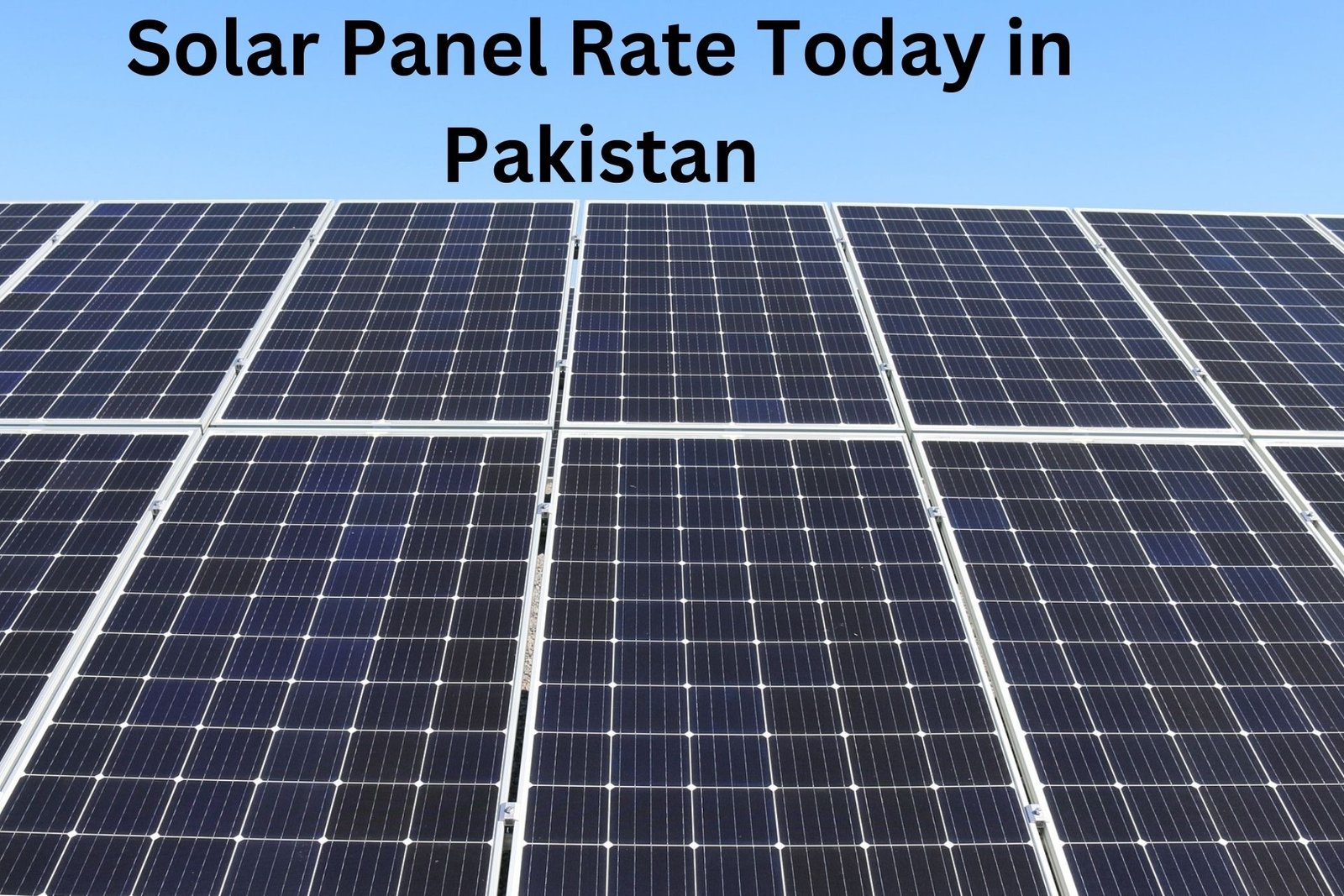In recent weeks there has been growing speculation about the potential increase in Solar Panel Rate in Pakistan. With whispers circulating in various forums and social media groups many are concerned about whether these price hikes are imminent or merely rumors. This article delves into the current market trends, the factors influencing solar panel prices and what you can expect in the coming days.

Current Solar Panel Rate in Pakistan Trends
Over the past few months solar panel prices in Pakistan have been steadily decreasing. This trend has been encouraging for many who are looking to invest in solar energy as a long-term solution to their electricity needs. The current market rates are highly competitive, making it an opportune time for those considering making the switch to solar power.
To check the daily updated rates of all available solar panels, you can visit websites like solarpanelsupdate.com that provide comprehensive and up-to-date information.

Factors Influencing Solar Panel Prices
There are several key factors that can influence the prices of solar panels in Pakistan:
- Demand and Supply:
- During the summer months the demand for solar panels typically rises due to increased electricity consumption. However, despite the high demand prices have continued to fall. As we move into the winter months demand is expected to decrease which could keep prices stable or even lower.
- Import Taxes:
- Currently there are no import taxes on solar panels or related machinery which has been a significant factor in keeping prices low. Unless the government introduces new taxes prices are unlikely to increase significantly.
- Exchange Rates:
- The stability of the Pakistani Rupee (PKR) against the US Dollar has also played a crucial role in maintaining current price levels. Any sudden fluctuation in the exchange rate could impact solar panel prices.
- Market Manipulation:
- There have been instances where certain groups, referred to as the solar mafia have attempted to artificially inflate prices by creating a false sense of scarcity. While this has caused temporary price spikes in the past such tactics are generally short-lived.
Is a Price Hike Imminent?
Given the current market conditions and the factors discussed it is unlikely that solar panel prices will see a significant increase in the near future. The market appears stable and unless there are drastic changes in government policy or exchange rates, the prices should remain steady.
However, it’s essential to stay informed and avoid falling prey to panic buying driven by unfounded rumors.
What Should You Do?
For those considering installing solar panels now is a good time to proceed with your plans. The current rates are favorable, and there is no immediate threat of a significant price hike. If you have the financial means, it’s advisable to invest in solar energy now rather than wait for a potential increase in prices.
Solar Panel rate in Pakistan – August 2024
| Brand | Model | Wattage | Price (₹) |
|---|---|---|---|
| JA Solar | JAM72S20 | 390W | 15,000 |
| Longi Solar | LR4-72HPH | 445W | 20,500 |
| Canadian Solar | CS6U-355M | 355W | 16,000 |
| Trina Solar | TSM-DE17M(II) | 450W | 21,000 |
| Jinko Solar | JKM385M | 385W | 17,000 |
FAQs Solar Panel rate in Pakistan
Will solar panel prices increase in the coming months?
As of now, there are no indications of a significant price increase. The market is stable, and prices are expected to remain steady.
What factors could lead to an increase in solar panel prices?
A sudden rise in the US Dollar exchange rate or new import taxes imposed by the government could potentially lead to higher prices.
Should I buy solar panels now or wait?
It’s advisable to buy now, as the current prices are favorable, and there is no immediate threat of a significant increase.
Where can I check the latest solar panel prices in Pakistan?
You can check the latest prices on various websites that offer daily updates on solar panel rates, such as solarpanelsupdate.com.
Are there any risks involved in waiting for prices to drop further?
While prices are currently low, waiting too long might expose you to potential risks of price hikes if unforeseen factors come into play.
